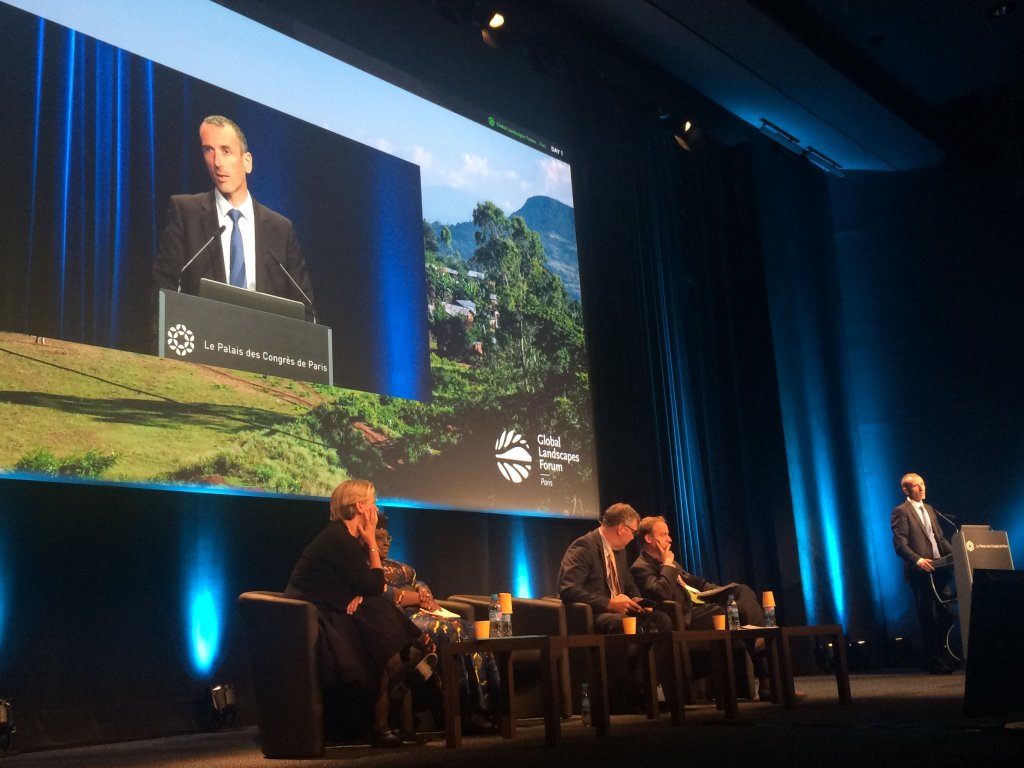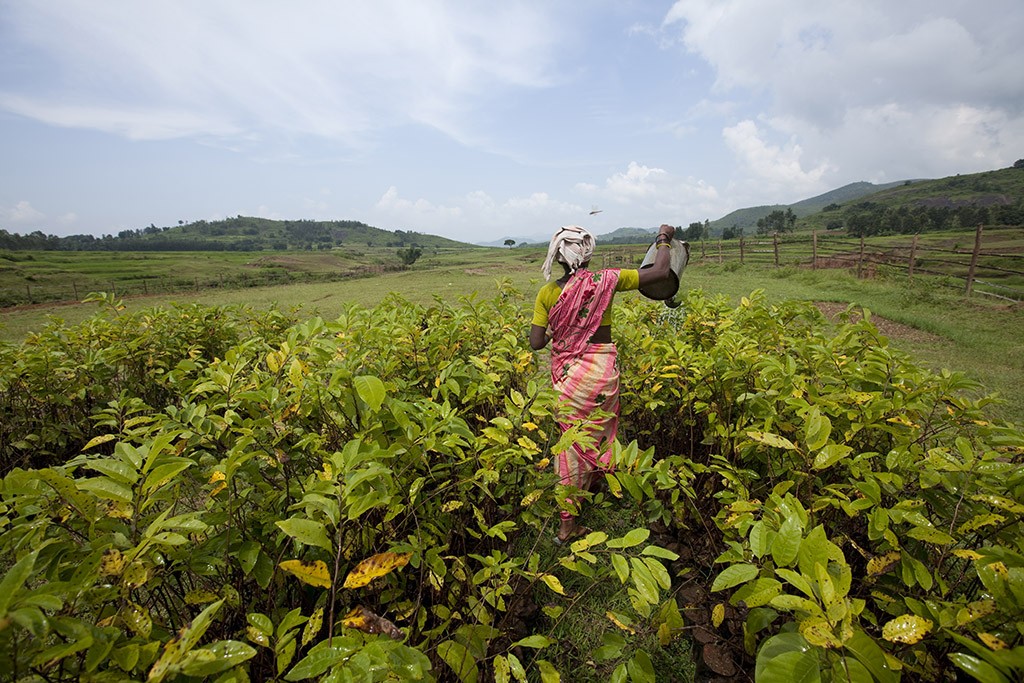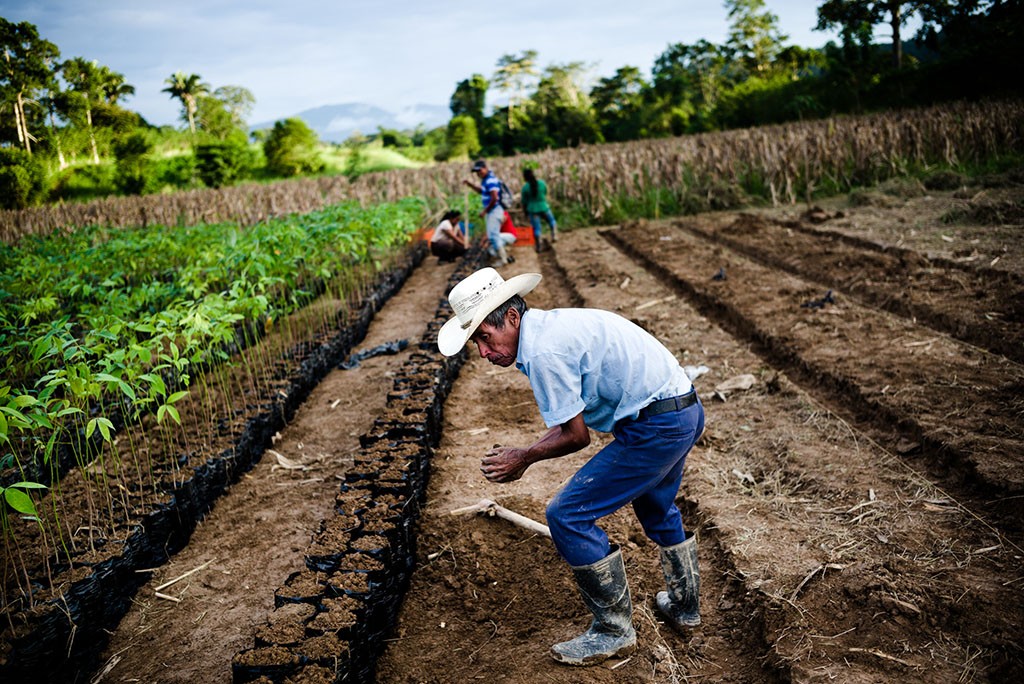The United Nations Climate Change Conference (COP 21) kicked off in Paris this November 30 and will continue through December 11. Its objective is to achieve a legally binding and universal agreement on climate, from all the nations of the world. Current commitments on greenhouse gas emissions run out in 2020, so governments are expected to produce an agreement on what happens for the decade after that at least, and potentially beyond.
The big theme that has emerged during the COP21 is the need for the private sector to engage more proactively in combatting climate change, landscape restoration and conservation alongside the public sector- whose coffers have been running low for some time now and are incapable of surmounting these challenges on their own.
The Global Landscapes Forum: Forestry, agriculture and finance sectors come together to create solutions
Livelihoods, which launched its new investment fund dedicated to smallholder farming- the Livelihoods Fund for Family Farming (Livelihoods 3F)- in February 2015 with Danone and Mars, Inc. is convinced of the power of large companies to transform their relationships with their producers in order to create added value in their ecosystems. It presented its unique fund model at the 2015 Global Landscapes Forum (GLF) in Paris this past Saturday (December 5).
Considered the largest event on the sidelines of the COP21, the GLF brought together 3,000 participants (ministers, CEOs, NGOs, researchers, etc.) from across the forestry, agriculture, finance and other sectors, in both developed and emerging countries, to discuss the role of sustainable land use in achieving climate and development goals and to forge solutions.
Danone’s CEO Emmanuel Faber participated in the Opening Plenary, alongside Baroness Ariane de Rothschild, Chair of the Executive Committee, Edmond de Rothschild Group, Ngozi Okonjo-Iweala, Economist and former Minister of Finance, Nigeria, and Peter Holmgren, Director General, Center for International Forestry Research (CIFOR). He spoke about his company’s commitment to stop climate change impacts.
“It’s time to synchronize food cycles,” he said, commenting on connecting farmers and consumers. (Watch his full address here)
Supply Chains as Levers for Development
The 500 million smallholder farmers who produce 70% of the world’s food today will be essential in securing our future livelihoods. With our population expected to exceed 9 billion by 2050, we need to double our food production despite declining resources. Supply chains represent powerful untapped levers to solve this dilemma. Designed sustainably, they can help mitigate climate change, secure resources, reduce poverty and ensure adequate food supply.
The Livelihoods Fund for Family Farming and its business and NGO partners held a special climate action event at the GLF that featured voices from a global community of leaders that engaged in lively debates about opportunities in sustainable sourcing. It addressed questions including the following:
- How to encourage private investment in landscape restoration?
- What is at stake for companies seeking to transform their supply chains?
- How can we better integrate the landscape approach in sustainable supply chain and sustainable certification systems?
- How can we better build win-win relationships between smallholder farmers, companies, and the environment and scale up best practices?
Recently joined by Firmenich and Veolia, the Livelihoods Fund for Family Farming aims to help companies sustainably source the materials they need from smallholder famers while delivering large-scale social and economic impact to those farming communities.
The fund will invest 120 million euros to implement projects across Africa, Asia and Latin America that will convert 200,000 farms to sustainable agricultural practices. Less than a year after its creation, Livelihoods 3F is set to launch its first project in 2016. It is actively structuring projects around key crops like milk, vanilla, mint, cocoa, sugar and palm.
Event speakers at the GLF included:
- Tony Simons, Director-General, World Agroforestry Center (ICRAF)
- Bernard Giraud, President, Livelihoods Venture
- Eric Nicolas, CFO, Firmenich
- Laurent Auguste, Senior Executive Vice-President, Innovation & Markets, Veolia
- Pascal de Petrini, Vice President of Strategic Resources Cycle, Danone
- Barry Parkin, Chief Sustainability Officer, Mars, Inc.
- Manoj Kumar, Founding CEO, Naandi Foundation (NGO in India)
- Wangu Mutua, Kenya Country Director, NGO VI Agroforestry
- John Gethi, Director of Milk Procurement, Brookside Dairy (Kenya)
- Dominique Roques, Head of Natural Sourcing, Firmenich
- Marco Cerezo, Founder, Fundaeco (NGO in Guatemala)
Real case studies from the field with Livelihoods’ NGO partners in Kenya, India and Guatemala were presented.
In Kenya, Livelihoods is working with 30,000 dairy farmers through the NGO VI Agroforestry to transform their farming practices and facilitate their access to the market with the help of Brookside Dairy.
In India, Livelihoods has helped the Naandi Foundation to plant 6 million coffee and mango trees with the indigenous Adivasi farmers- among the most disadvantaged rural peoples in the country. “The biggest economic paradox of our time is that while family businesses have been shown to be among the most successful, family farmers are failing at assuring their own livelihoods. Why? This is something that needs to change urgently.“ said Manoj Kumar, Founding CEO of the Naandi Foundation.
In Guatemala, Livelihoods is working to plant 5 million fruit and forest trees with the Maya and Ladino communities with the help of the NGO Fundaeco. One of the objectives is to increase the local farmers’ revenues by introducing them to cash crops like cardamom and rubber.
The Livelihoods event drove home the message that companies that buy millions of tons of commodities have a real power to transform supply chains and the responsibility to do so. Indeed, the private sector’s contribution to climate change mitigation is a major focus of COP21. By investing in smallholders, businesses can make headway towards the SDGs, including the eradication of hunger, building resilient livelihoods, and more.
“We work in the flavors and fragrances business. Our current palate consists of 180 crops from 4 continents. 90% of these crops come from smallholder farmers. So what happens if family farming fails? We must act today. Otherwise, some of our crops may become extinct in the near future,” said Dominique Roques, Head of Sustainable Sourcing at Firmenich, when asked about the motivation of Firmenich to join the Livelihoods Fund for Family Farming.
Innovation is what businesses do best. They create new sources of value and generate impact. While NGOs and governments play an essential role, they alone can’t solve complex problems like climate change. Business innovation is essential.
Watch the full session here:




